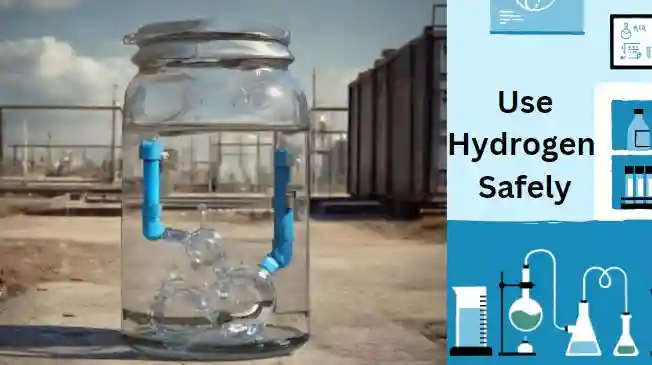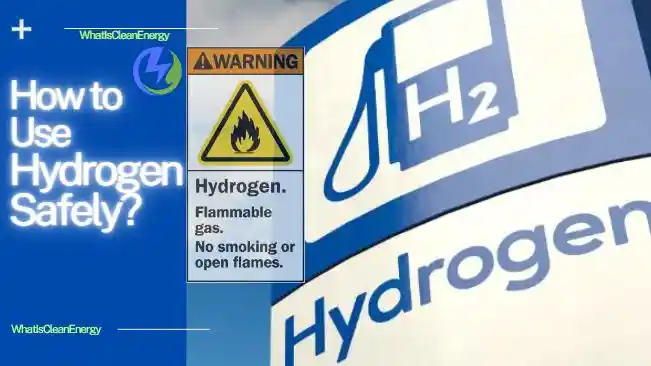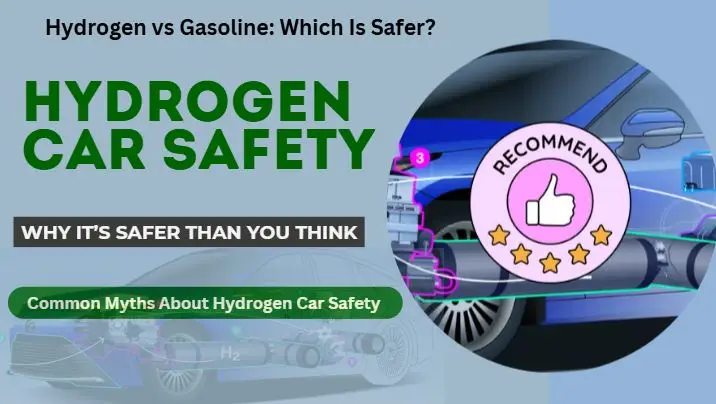Hydrogen is a kind of energy that is clean and renewable. We can use hydrogen for many things, such as cars, electricity, and factories. But hydrogen can also be dangerous if we are not careful. Hydrogen can catch fire easily, and we cannot see or smell it. Hydrogen is also very light, so it can go up in the air and stay there. So we need to follow some rules to use hydrogen safely. Let’s dive into it and learn how to use hydrogen safely.
Using Hydrogen Safely
These are some of the rules:
- Make sure the hydrogen systems are good: Hydrogen systems are the machines and pipes that make, store, or use hydrogen. We need to ask experts to design and install them. They should follow the rules and standards for hydrogen systems. They should also add some things to make them safer, such as valves, detectors, fans, fire stoppers, and switches. We should check and fix the hydrogen systems often to make sure they work well.
- Be careful with hydrogen: We need to be careful and respectful when we deal with hydrogen. We should keep hydrogen in the right containers that have labels and locks. Also, we should not put hydrogen near heat, fire, or anything that can make it burn. We should also use hydrogen in places that have good airflow to avoid having too much hydrogen gas.
- Learn and teach about hydrogen safety. We need to learn and teach others how to use hydrogen safely and what to do if something goes wrong. Learning about hydrogen features and facts, operating and maintaining hydrogen systems, and knowing what to do in emergencies is important. We should also teach the people who will help us if there is a problem with hydrogen, such as firefighters or police. They should know how to find and stop hydrogen leaks, fires, or explosions and how to deal with different situations.
Experts Tips to Use Hydrogen Safely

Here are some tips from experts that can help us use hydrogen more safely:
- Use devices that can sense and warn about hydrogen: These devices can tell us if there is hydrogen gas around us and make a sound or a light to let us know. These devices can help us prevent or stop hydrogen problems by giving us time to act. We should put these devices in places where we make, store, or use hydrogen, and we should make sure they work well and are accurate.
- Follow the best practices for hydrogen safety: These are some advice and suggestions that can help us improve our safety and culture when we use hydrogen. These include doing safety checks and tests, making and following safety plans and rules, giving and getting safety training and education, and sharing and learning from our experiences and mistakes.
- Use the tools and information about hydrogen safety: These are some things that can help us know more and better about hydrogen safety. These include databases, websites, books, videos, and training materials that have a lot of information and updates on hydrogen safety topics, issues, and news. We can use these things online or offline, and we can use them for reference, guidance, or learning.
Conclusion
Hydrogen is a good energy source that can help the environment and people. But hydrogen can also be risky if we don’t use it safely. By following the rules, being careful, learning and teaching, using devices, following best practices, and using tools and information, we can use hydrogen safely and avoid problems. Hydrogen safety is something that we all need to do and work on together.
How do you transport hydrogen safely?
To transport hydrogen safely, it’s often compressed or liquefied and then stored in special containers or pipelines. Safety measures and guidelines must be followed during transportation.
What is the safest way to produce hydrogen?
The safest way to make hydrogen usually means using ways that create it with less greenhouse gases. You can achieve this by using methods such as electrolysis powered by solar or wind energy. This reduces the environmental impact and risk associated with hydrogen production.
Is using hydrogen as a fuel safe?
Yes, using hydrogen as a fuel can be safe, but it depends on how it’s handled and stored.
What are the safety issues with hydrogen?
Hydrogen is highly flammable, which means it can catch fire easily. It’s also a very light gas, so it can escape and disperse quickly if not managed properly.



